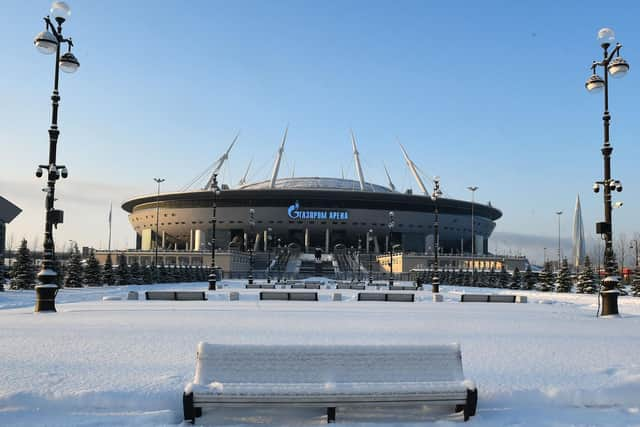Gazprom: everything you need to know about the Russian owned gas company including what is Gazprom worth?
Who are Gazprom and how important is Gazprom to Russian finance?
Founded in 1989, Gazprom is a global energy giant sitting on the planet's biggest natural gas reserves.
Advertisement
Hide AdAdvertisement
Hide AdGazprom has a 16 per cent share of the world's reserves and three quarters of all of Russia's natural gas reserves. A staggering 68 per cent of global domestic gas is produced by Gazprom.
How much is Gazprom worth?
In its Global 2000 companies rich list, Forbes last year had Gazprom's market capital value stated at $73.5bn. However, any best guesses as to how much Gazprom is worth are immaterial because of who owns it. Following Russia's invasion of Ukraine on Thursday morning, Gazprom stock prices were down by a third.
So who owns Gazprom and how was it formed?
Quite simply, Russia itself. It is a state owned and state run company that flipped from Communist Ministry of Gas to the more Western-looking Gazprom off the back of the Cold War. It isn't over-stating it to suggest Gazprom is Vladimir Putin's cash machine. Russia uses the energy giant to monopolise the gas market and control pricing. The Russian state owns more than 50 per cent of the firm, and its chief was appointed in 2001 - the year after Putin won the 2000 election.


Do we rely on Gazprom in the UK for our gas?
No. The UK is not exposed to Gazprom and Russia in the same way some EU countries are. The UK takes less than 10 per cent of its gas from Russia, with most recent estimates actually stating just five per cent. Countries like Germany and Finland are far more exposed to Russia should gas supply become interrupted.
Advertisement
Hide AdAdvertisement
Hide AdWhat influence does Gazprom have over UEFA, the Champions League and European football?
Crudely, Gazprom pays UEFA millions and millions of pounds in sponsorship - thought to be between £30m and £40m per year. Crucially, Gazprom also someone on the inside at UEFA: Alexander Dyukov.
Who is Alexander Dyukov and what has he got to do with UEFA?
Alexander Dyukov is the President of the Russian Football Association. He is also a member of the executive committee of UEFA. So what?
Advertisement
Hide AdAdvertisement
Hide AdWell, he happens to be the former President of Zenit St. Petersburg - the club that owns the Gazprom Arena. Following?
Critically, Alexander Dyukov is also the CEO of Gazprom. He therefore represents one of the most powerful voices on the committee, with Gazprom bankrolling UEFA to such an extent that without Gazprom's millions, UEFA will be much the poorer for it.
So will UEFA cut ties with Gazprom and Russia?
Possibly. The Yorkshire Post understands that an emergency UEFA executive committee meeting has been called for tomorrow (Friday 25th February, 2022) morning, with Europe's showpiece fixture being stripped from St Petersburg - due to take place on May 28th - at the very least.
News of what UEFA plans to do is expected at 10am tomorrow morning. It would be the third time in as many years that the UEFA Champions League Final has had to be moved.
What about the clubs that Gazprom sponsors?
FC Schalke has already declared that it intends to remove the Gazprom logo from the front of its shirts.
Comment Guidelines
National World encourages reader discussion on our stories. User feedback, insights and back-and-forth exchanges add a rich layer of context to reporting. Please review our Community Guidelines before commenting.